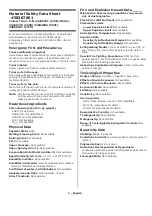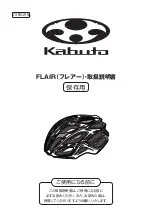
EN
87
GLOSSARY OF TERMS
Iris
Works like the pupil of the human eye. In a well-lit environment, the human pupil contracts to keep too
much light from entering. In low lighting, the pupil dilates to allow more light in.
Color temperature
A measurement in Kelvin degrees which indicates the color contents of a light source; bluish light has a
higher color temperature than reddish light. To reproduce white as white under different types of lighting,
the chrominance signal must be adjusted to match the light source’s color temperature.
(See “White Balance”.)
AC Charger Station
Used when charging the battery. Or, when connected directly to the camcorder, it can be used as a power
supply.
Auto focus
Focus can be set for automatic adjustment, for beginners who find the adjustment difficult.
On-screen display
Displays in the viewfinder or the LCD monitor can be shown on a connected TV.
Strobe
In the early days of movie making, 1-second strobes were uncommon, so movies didn’t have the smooth
movement they have today. This function gives movies the old-film flicker effect.
Record-Standby
Engage this mode by pressing START/STOP during Stop or Record modes. It means that the camcorder, or
your VCR, is paused and ready to record.
CCD (Charge coupled device)
Solid-state imaging device used in camcorders as the camera’s image pickup; analogous to the eye’s retina
except that picture information is output as electric signals.
Dew sensor
If condensation forms inside the unit due to a temperature change, the indicator appears in the viewfinder or
the LCD monitor, and the camcorder becomes unusable.
Digital zoom
10X Optical zoom image is taken and digitally processed to provide 40X or 100X magnified images.
Digital Image Stabilizer
When shooting while holding the camcorder in your hand, even if you think you’re perfectly still, there is
slight movement. This function compensates for that movement.
Fade
An effect used in scene transitions. Like movies or TV, the scene gradually goes black or white (fade out), or
comes in from a black or white screen (fade in).
White balance
A term that refers to the correctness of color reproduction under various lighting. If the white balance is
correct, all other colors will be accurately reproduced.
Wipe
An effect used in scene transitions. A scene disappears as though it’s being wiped off the screen (wipe out),
or appears as though it’s wiped on (wipe in).
Summary of Contents for GR-DVM5
Page 90: ...MEMO ...
Page 91: ...MEMO ...






































